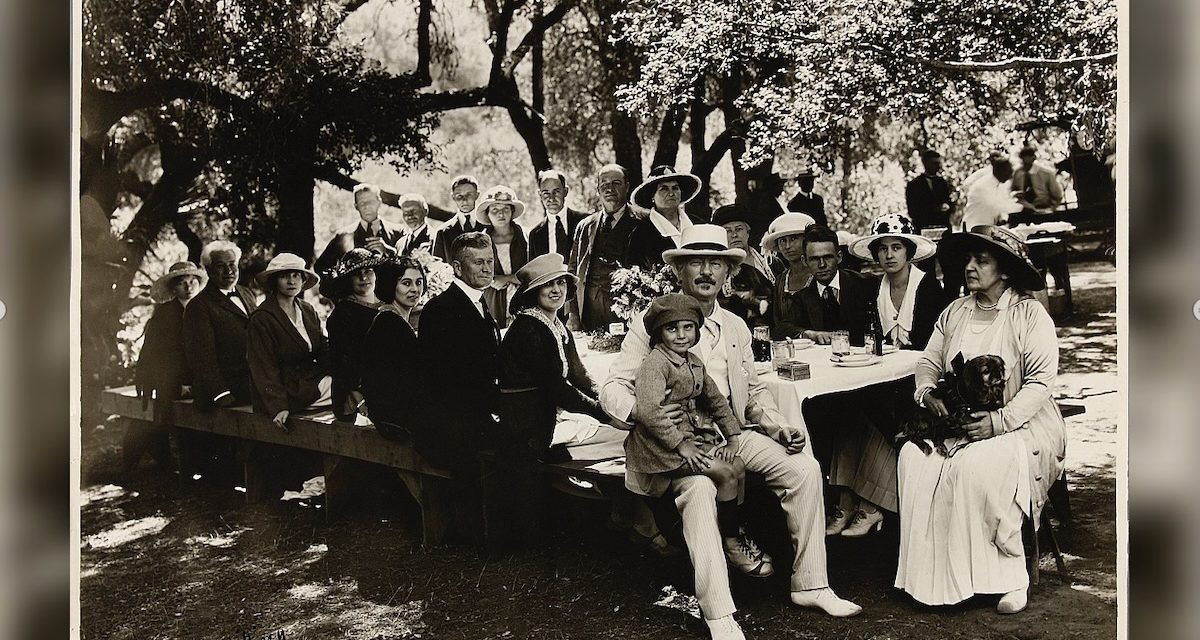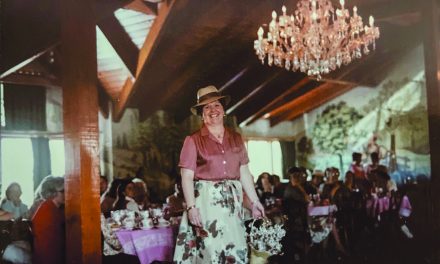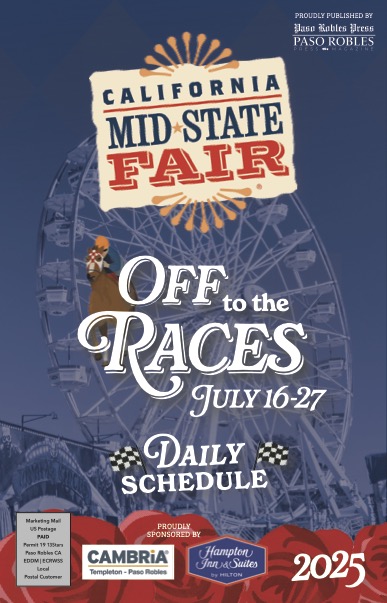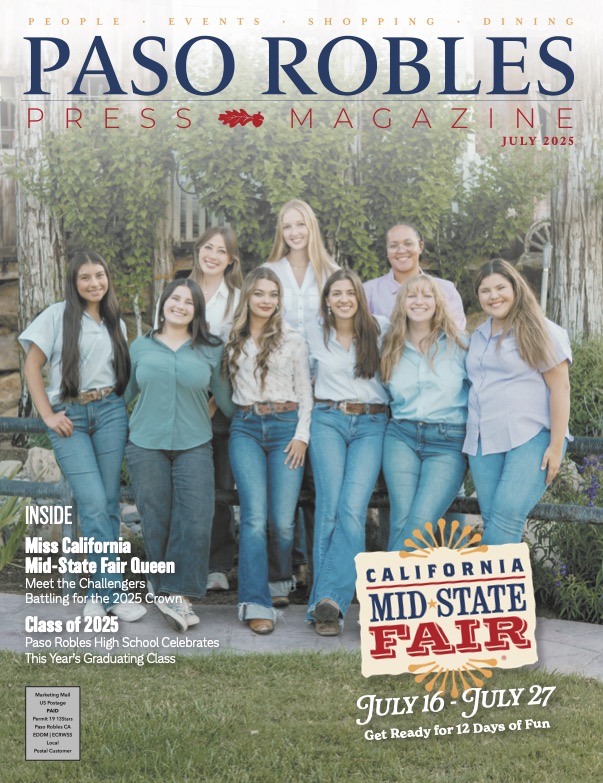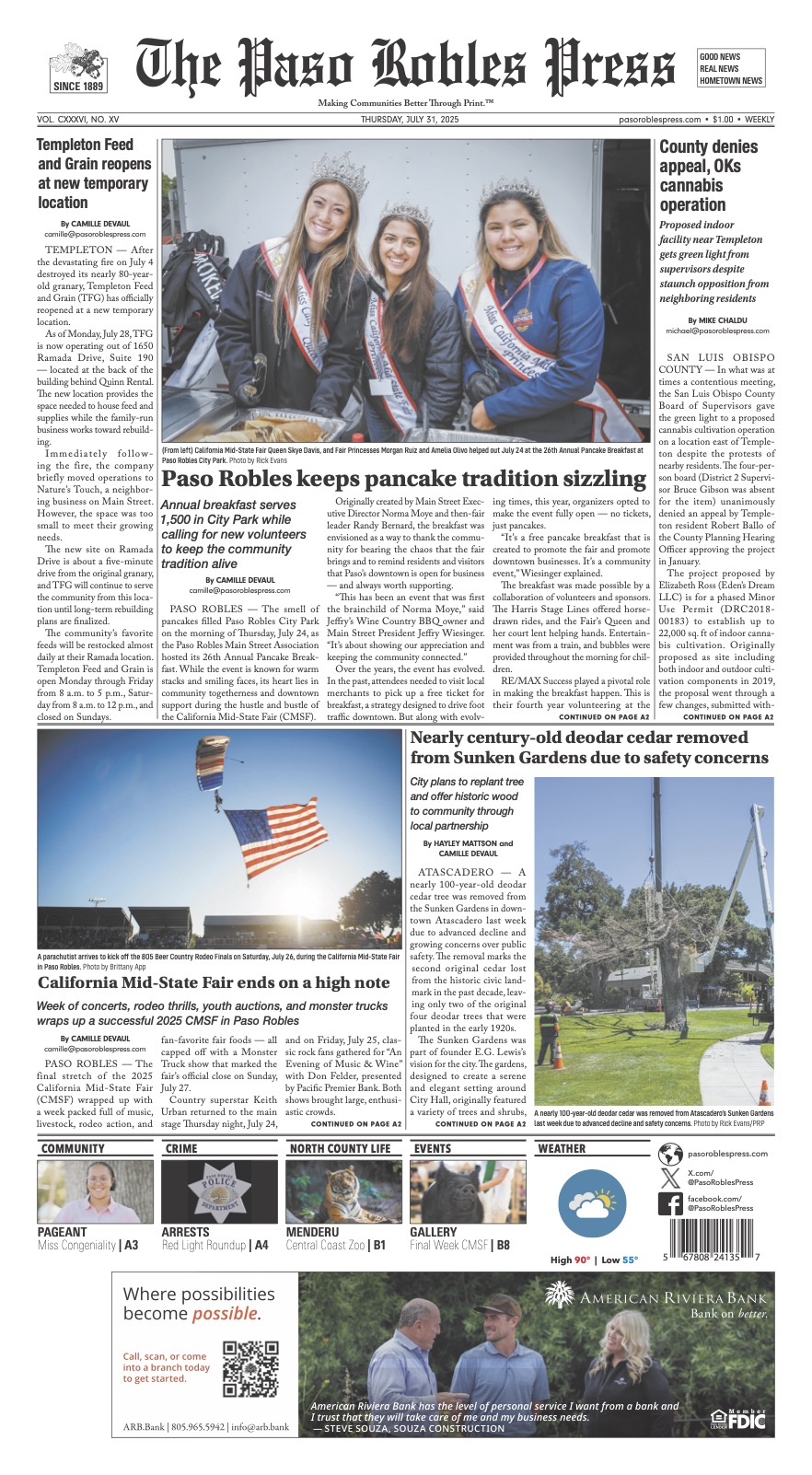By Camille DeVaul and the Paso Robles Area Historical Society and Museum
When Ignacy Jan Paderewski first set foot in Paso Robles in January 1914, he was not there to perform but to heal. The world-renowned pianist and composer was seeking relief from neuritis, a debilitating nerve condition that had forced him to suspend his American concert tour. Drawn to the town’s therapeutic sulphur hot springs, Paderewski discovered in Paso Robles not just a place of healing, but a sanctuary that would serve as his retreat from the world of music and politics for the next 25 years.
During his stays, Paderewski embraced leisure with the same passion he brought to the piano. He was an avid golfer and often played bridge and billiards at the Hotel El Paso de Robles, where he resided. The hotel staff even organized lavish picnics for him and his guests, with carefully prepared hot and cold foods, all served in scenic spots in the Paso countryside. These outings, complete with elegant settings of silverware, candlelight, and fine linens, showcased Paderewski’s love for life’s finer pleasures, but also his deep appreciation for nature and camaraderie.
One of his favorite pastimes, surprisingly, was going to the movies in town. Paderewski was a true film enthusiast, delighting in the adventures of Douglas Fairbanks, the melodramas of Mary Pickford, and the comedies of Charlie Chaplin. He would attend screenings with two small bags of candy — one filled with unshelled peanuts, the other with gum drops or Jujubes — his face lighting up like a child’s as he enjoyed the magic of cinema. Local lore recounts how he relished these moments of escape from the weight of his public life.
Exercise and fresh air were central to his routine in Paso Robles. Paderewski and his wife, Madame Helena Paderewska, often took leisurely strolls around the town’s central park. A photograph from 1925 shows them walking with Chief John Big Tree, a member of the Onondaga Tribe and a well-known actor of the silent film era. This snapshot of his life — marked by quiet walks, good company, and a simple connection to the natural world — speaks to the sense of peace Paderewski found in Paso Robles.
Perhaps the most touching reflection on Paderewski’s relationship with the town comes from a letter his wife wrote in 1923 to her son. In it, she described the happiness and tranquility they experienced during their stay, marveling at the weather, the friendliness of the locals, and even the delight of their two Pekingese dogs, Jouby and Fitzi, who were reveling in the fresh air and freedom. Madame Paderewska wrote, “In Paso we feel so well. Only now do we realize how much needed was this rest we are getting … life here seems extra delightful.”
As time passed, Paso Robles became more than a place of physical healing for Paderewski — it became a cherished refuge where he could indulge in life’s simpler joys, surrounded by natural beauty and the warm hospitality of a town that embraced him as one of their own.
PASO ROBLES PRESS MAGAZINE
Copies of Paso Robles Press Magazine are directly delivered to 23,000 readers in zip codes 93446, 93451, and 93465 and 2,000 dropped with support from advertisers and subscribers. Together, we are Making Communities Better Through Print.™
To subscribe or advertise, click here.

